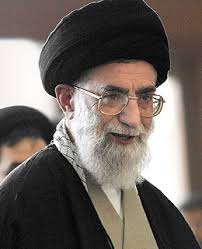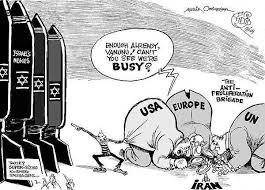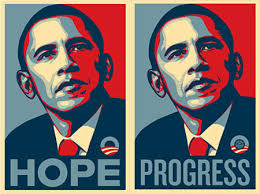 By Sherwood Ross
By Sherwood Ross
As commander-in-chief of the military, former President George W. Bush was responsible for U.S. attacks on hospitals in Iraq and Afghanistan, the mistreatment of their personnel and patients, and the denial of medical supplies to them and to the general populations of those nations, an authority on war crimes says.
One of the most egregious of the Bush war crimes, the force-feeding of prisoners, is being continued by the Obama administration even though it is in violation of medical ethics and the first Protocol to the Geneva Conventions of 1977, the authority notes.
In a new book that compiles the war crimes committed by U.S. forces, “George W. Bush, War Criminal?”(Praeger), political scientist/author Michael Haas writes:
“In 2001, the children’s hospital in Kabul was bombed, and the hospital in Herat (both in Afghanistan) was targeted, resulting in about one hundred deaths.. The al-Nouman Hospital in Baghdad was hit in the initial bombing in 2003 resulting in the deaths of five persons” and the Central Health Center in Falluja (Iraq) was bombed in November, 2004, killing 35 patients and 24 hospital employees.
Moreover, the Nazzal Emergency Hospital in Falluja, run by a Saudi Arabian Islamic charity, “was reduced to rubble,” Haas writes, and when U.S. troops entered Falluja’s General Hospital, they forced all hospital employees and patients to lie on the ground and tied their hands behind their backs.”
The above acts violated the Red Cross Convention of 1864, which requires that “ambulances and military hospitals shall be acknowledged to be neutral…and shall be protected and respected by belligerents so long as any sick or wounded may be therein.” The acts also violate the 1929 Geneva Convention that says personnel ministering to the sick “shall be respected and protected under all circumstances.”
What’s more, on March 4, 2007, U.S. marines left the Jalalabad, Afghanistan, battlefield “without attending to those whom they had wounded,” Haas writes, and in July, 2008, U.S. soldiers blocked Afghan villagers from rescuing wounded civilians they sought to take to the hospital. This violates Article 1 of the Geneva Convention of 1949 that states “The wounded and sick shall be collected and cared for.”
Haas also notes that when Defense Secretary, Donald Rumsfeld issued an order denying prisoners the right to see a physician for six weeks from December 2, 2002, to January 15, 2003, even though the Geneva Convention of 1949, Article 15, states, “The Power detaining prisoners of war shall be bound to provide free of charge for their maintenance and for the medical attention required by the state of health.”
Haas writes that prisoners suffering from asthma, diabetes, heart conditions, hepatitis, leg wounds, and other maladies went untreated in the Middle Eastern countries invaded by the U.S. and that doctor visits also have been denied to Guantanamo prisoners “to induce cooperation.”
“Medical facilities, medicines, staff, and supplies were inadequate for the large number of prisoners at Abu Ghraib (Iraq),” Haas writes, and prisoners at Guantanamo were force fed even though the Tokyo Declaration of 1975 prohibits physicians to interfere medically with those who want to stop eating.
And where the Geneva Convention of 1949, Article 55, states, “the Occupying Power has the duty of ensuring the food and medical supplies of the population,” American and British vetoes in the Security Council blocked the release of $500 million in funds from the UN’s Iraqi oil-for-food account. Instead, they diverted the money to the Coalition Provisional Authority(CPA), “which failed to purchase needed supplies,” Haas writes..
And where the Geneva Convention of 1949, Article 56, states “Medical personnel of all categories shall be allowed to carry out their duties,” on May 23, 2003, the CPA fired top-level Iraqi government employees, including medical personnel. “The best hospital in Baghdad was converted into an American military hospital,” Haas writes, and the health administrator sent by the U.S. Agency for International Development, Dr. Frederick Burkle, was fired after one week “because he lacked political connections..” Haas adds that his replacement “failed to authorize funds for emergency rooms to treat victims of the insurgency, the most important medical problem at the time.”
According to Haas, a Belgian physician that visited 25 medical facilities in April, 2004, concluded, “Nowhere had any new medical material arrived since the end of the war” and that there was no sterile treatment at Al Nour Hospital, “as a result of which all patients with major burns are doomed to die.”
Haas states “the main result of the misoccupation of Iraq is an actual reduction in the state of public health.” He notes U.S. authorities actually “reduced the number of medicines available while occupying the country” and that children continue to be stricken with leukemia because the U.S. military “refuse to use Geiger counters to locate and dispose of ordnance containing depleted uranium despite pleading from the World Health Organization. “In matters of health, the Americans have descended like a plague of locusts on Afghanistan and Iraq,” Haas concluded.
Haas’s book lists 269 separate categories of war crimes for which former President George W. Bush was responsible. The book is arranged so that each category and the applicable war crimes statutes appear together. While those crimes concerning torture and the absence of due process are best known, the Haas book includes a wide range of war crimes violations from the failure to respect the legal framework of the invaded countries to the failure to promptly repatriate prisoners of war to the failure to protect public property.
Article taken from here.
 What will happen next? Will Palestinian kids be duped into playing music to Israeli pilots who exterminated Gaza children with White Phosphorus?
What will happen next? Will Palestinian kids be duped into playing music to Israeli pilots who exterminated Gaza children with White Phosphorus?





















